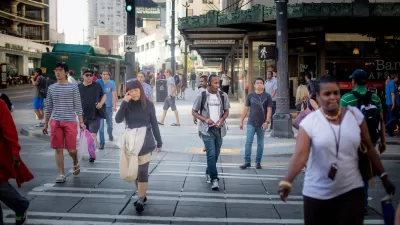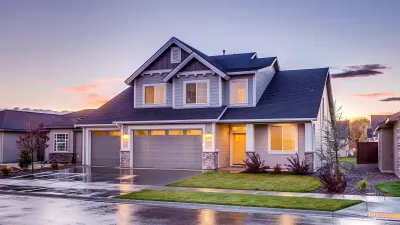New census data shows that millennials and seniors are migrating less, a result of the Great Recession and its economic impacts. For those who are moving, cities in the Sun Belt have been primary destinations.

Demographer William H. Frey writes about the migration trends of millennials and Baby Boomers after the Great Recession, evident in new American Community Survey data. Migration rates for both groups slowed during and after the recession, reflecting the job and housing challenges millennials have faced and the delayed retirement and relocation limitations of seniors, says Frey.
Migration magnets for millennials are largely Sun Belt cities in the South and West. Baby Boomers also have headed to the Sun Belt, but none of the top five cities for each group overlapped, notes Frey. While both groups are leaving high-cost metropolitan areas, particularly on the coasts, millennials are spreading out across the country while seniors are focusing on the more traditional retirement states of Arizona and Florida.
"Millennials are more mobile than their elders and more apt to shift with changing opportunities, particularly to areas with knowledge based economies. In contrast, those seniors who do move are zeroing in on a smaller set of exclusively Sun Belt destinations that have long been associated with retirees, warm climates and recreation," concludes Frey.
FULL STORY: How migration of millennials and seniors has shifted since the Great Recession

Maui's Vacation Rental Debate Turns Ugly
Verbal attacks, misinformation campaigns and fistfights plague a high-stakes debate to convert thousands of vacation rentals into long-term housing.

Planetizen Federal Action Tracker
A weekly monitor of how Trump’s orders and actions are impacting planners and planning in America.

Chicago’s Ghost Rails
Just beneath the surface of the modern city lie the remnants of its expansive early 20th-century streetcar system.

Bend, Oregon Zoning Reforms Prioritize Small-Scale Housing
The city altered its zoning code to allow multi-family housing and eliminated parking mandates citywide.

Amtrak Cutting Jobs, Funding to High-Speed Rail
The agency plans to cut 10 percent of its workforce and has confirmed it will not fund new high-speed rail projects.

LA Denies Basic Services to Unhoused Residents
The city has repeatedly failed to respond to requests for trash pickup at encampment sites, and eliminated a program that provided mobile showers and toilets.
Urban Design for Planners 1: Software Tools
This six-course series explores essential urban design concepts using open source software and equips planners with the tools they need to participate fully in the urban design process.
Planning for Universal Design
Learn the tools for implementing Universal Design in planning regulations.
planning NEXT
Appalachian Highlands Housing Partners
Mpact (founded as Rail~Volution)
City of Camden Redevelopment Agency
City of Astoria
City of Portland
City of Laramie




























